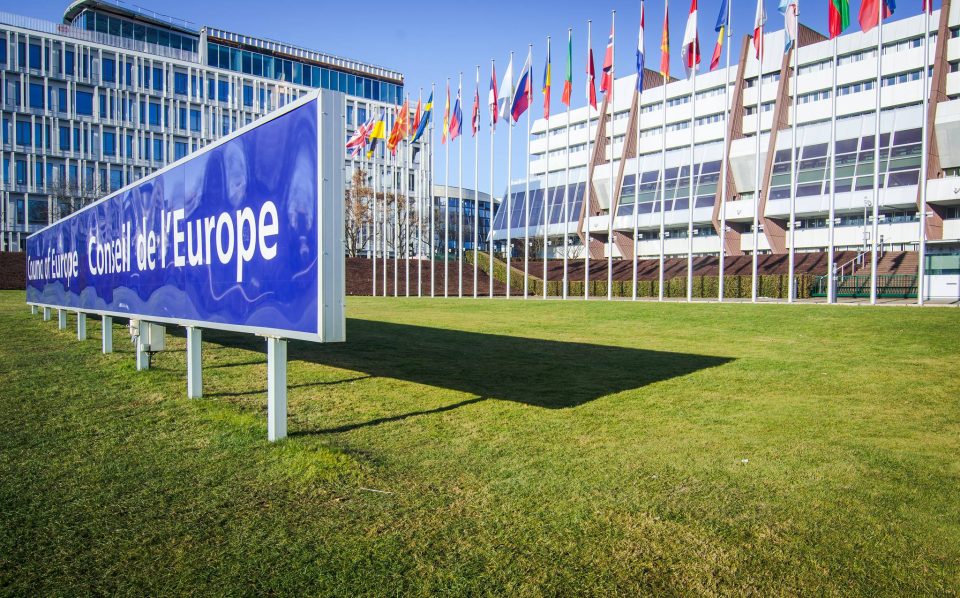STRASBOURG, JUNE 8 (ONASA) – The Council of Europe demands that politicians in Bosnia and Herzegovina urgently stop ignoring the judgments of the European Court of Human Rights in the case Sejdić and Finci v. BiH, which was conducted before that court, and urgently implement the decisions.
In the latest decision of the Permanent Representatives of the member states of the Council of Europe, the authorities in BiH are asked “to immediately initiate the necessary electoral reforms, which would lead to the adoption of constitutional amendments that would eliminate discrimination based on nationality.”
The Council of Europe reminds that after the general elections in October, the leaders of several political parties signed a coalition agreement in which, among other things, they agreed to adopt “limited changes to the Constitution and electoral legislation in order to implement the current rulings” no later than six months after the formation of governments at all levels. , but that there are no results.
“We firmly insist that the greatest importance is given to the immediate initiation of the electoral reform and we appeal to political leaders and all relevant authorities to ensure that the obligation they have imposed on themselves leads to concrete results, and that, with the implementation of all necessary consultations, they take all necessary actions in order to ensured the adoption of constitutional and legal amendments with the aim of eliminating discrimination based on nationality in the elections for the Presidency and the House of Peoples of Bosnia and Herzegovina,” the decision states.
The Council of Europe reminds that the verdict in the case of Sejdić and Finci was passed 14 years ago and that four election cycles have been held so far, under the same legal conditions.
Emphasizing that such practice is considered discriminatory by the European Court of Human Rights, they call on politicians to fulfill their promises.
In the decision, the permanent representatives of the member states in the Council of Europe referred to the submission of the Commissioner for Human Rights, Dunja Mijatović, who repeatedly sent similar appeals to the authorities in Bosnia and Herzegovina.
In her submission, she expresses concern that discriminatory provisions are in force a full 14 years after the first verdict in the case “Sejdić and Finci v. BiH” and that they prevent many citizens of Bosnia and Herzegovina from fully enjoying their democratic rights.
“Those who do not belong to one of the constituent nations, who are defined in the Constitution as “Others”, have been denied the right to run for office in the elections to the Presidency and the House of Peoples of Bosnia and Herzegovina for the past 28 years. This includes national minorities that have lived in Bosnia and Herzegovina for centuries.”
She adds that four internal resolutions, many decisions of the Committee of Ministers and intensive engagement of the international community did not bear fruit and led to the fulfillment of the judgments of the Court of Human Rights in a total of five judgments dealing with this issue.
“According to the Commissioner’s opinion, time has always been of the essence in the execution of these judgments, and the negative impact of the delay on social cohesion and inter-ethnic relations was significant. “Ethnic keys” deeply embedded in the country’s constitutional system, at the state and entity level, have intensified divisions along ethnic lines over the years, which has had a negative impact on the state of human rights in the country,” Dunja Mijatović stated in the submission.
She recalled that the Venice Commission warned of these risks back in 2006, in its opinion on constitutional reform from that year, in which it was stated that the concepts of “constituent nations” and “Others” lead to the stratification of society and the worsening of ethnic tensions
“The Commissioner shares the opinion of the Venice Commission that those who decided to “exclude” themselves from one of the constituent nations replaced their “ethnic identity” with “identity through citizenship” and that “this attitude should be encouraged, among other things, by strengthening the position of the “Others” at the constitutional level”, it was stated in the submission.
Dunja Mijatović assessed that the non-implementation of these judgments by the authorities contributed to the further deterioration of the situation in Bosnia and Herzegovina and strengthened ethnic divisions.
“Increased threats to peace and stability, increase in hate speech, glorification of war criminals and unsanctioned denial of genocide, as well as long-standing divisions in education along ethnic lines, are just some of the negative consequences of preserving a system based on ethnic discrimination. It is imperative that the authorities focus on building a state based on the equality of citizens, and not on further incorporating ethnic discrimination into the Constitution and electoral legislation,” states, among other things, the submission of the Commissioner for Human Rights of the Council of Europe sent to the Permanent Representatives of the member states of the Council of Europe for consideration during evaluation of the application of judgments of the Court of Human Rights, among which there are five related to the provisions of the election law and the constitution of Bosnia and Herzegovina, of which the Sejdić Finci case is the most famous, reports N1.


